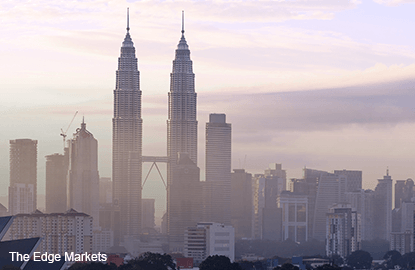
SINGAPORE (June 7): Southeast Asian countries, with the exception of Thailand and Singapore, have better economic prospects than the rest of Asia, according to Nomura Holdings.
In a Tuesday media briefing, senior Nomura economists and researchers say that the countries they are positive about – Malaysia, the Philippines, and Indonesia -- are strong structurally and have the right policies in place.
Euben Paracuelles, Nomura’s Senior Economist on Southeast Asia, says they have a neutral outlook on Malaysia, but is positive overall noting the sentiments around the country.
“The economy is really quite resilient despite this combination of shocks from low commodity prices, fiscal consolidation [and] the political noise… because there was quite a bit of diversification in the economy in the last couple of decades,” Paracuelles says.
He says Malaysia’s manufacturing sector is doing well because it has a competitive currency and the right product mix that can cater to the current US consumer demand and their recovering housing market.
With manufacturing making up 60% of the export sector, and commodities making up 30%, the manufacturing gains is enough to offset the loss in commodity profits, he adds.
For the Philippines, Paracuelles noted that the new president, Rodrigo Duterte, would “take a very pragmatic approach [for the economy].”
He says that it is unlikely for Duterte to reverse the current economic reforms, and the eight-point agenda he released after his win highlighted that policy continuity is key.
Indonesia has the best prospects among all the Asian economies, the Nomura economists say, predicting a 5.4% GDP growth this year, and 5.8% in 2017.
Paracuelles say that the country is “at the cusp of a great revival”, owing to a reshuffle in the cabinet last 2015 that has changed their strategy for reform into one more “targeted types of reform which hare easier to implement…[that] will lead to a more business-friendly and investment-friendly environment”.
The better coordination between the country’s fiscal and monetary policies, including keeping inflation under control and pushing improvements in infrastructure, will support growth, he adds.
Nomura is less confident about Singapore and Thailand, saying that both countries are structurally weak.
Domestically, Singapore is currently facing an aging population and lack of labour productivity improvements, leading to weak growth, the Nomura economists say. They estimate 1.5% to 2% GDP growth this year.
Thailand has a weak growth outlook because of excess capacity in its manufacturing sector, an export sector that is not producing what current consumers want, and a possible increase in political risks in the second half of the year, the economists say, and forecast 2016 GDP growth to be at 2.7%.
China’s slowing economy would also affect Thailand’s tourism sector, which gets most of its revenue from Chinese arrivals.